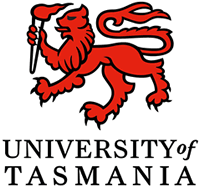Air pollution and bone health
Air pollution and bone health in children: Clearing the problem
About the research project
Childhood and adolescence are a critical period for the development of strong and healthy bones. Your bones are strongest around your twenties, after that bones come weaker and eventually may even become fragile (i.e., osteoporotic). It is evident that achieving a higher peak bone mass is of critical importance for the prevention of osteoporosis and its related fractures.
The goal of this PhD project is to investigate the relationship between air pollution and bone health in children. The project aims to examine the association between:
- Ambient and indoor air pollution and bone health in children
- You will assess different air pollutants and different measures of bone health (e.g., DEXA scan and heel ultrasound).
As the successful candidate for this position, you will have access to longitudinal national and international databases. You will be directly involved in processing and analysing data, reviewing scientific literature, write scientific articles, and give presentations at national and international conferences. PhD students at Menzies Institute for Medical Research enjoy access to top-level research facilities and receive training in science and career related aspects. Weekly seminars provide you with immediate access to many of the world’s most renowned scientists.
As this is a cross-disciplinary research project, you will have the opportunity to collaborate with experts in the field of bone health, life course epidemiology, and muscular fitness in children. You will be supervised by epidemiologist Dr. Lieke Scheepers, environmental health scientist and air pollution specialist Prof. Fay Johnston, and general practitioner and bone health specialist Prof. Tania Winzenberg.
What we are looking for:
We are looking for a talented PhD candidate with a keen interest epidemiology and physiology with experience in conducting quantitative data analysis.
Requirements:
- Master’s degree or equivalent in epidemiology, biomedical sciences, public health or biostatistics.
- Epidemiological background and previous experience with quantitative data analyses is of great advantage.
- Motivation and interest to do high-quality research.
- Excellent verbal and written English skills.
Curious? So are we:
Motivated students are very welcome to approach Dr Lieke Scheepers to discuss exciting project possibilities.
Primary Supervisor
Funding
Applicants will be considered for a Research Training Program (RTP) scholarship or Tasmania Graduate Research Scholarship (TGRS) which, if successful, provides:
- a living allowance stipend of $32,192 per annum (2024 rate, indexed annually) for 3.5 years
- a relocation allowance of up to $2,000
- a tuition fees offset covering the cost of tuition fees for up to four years (domestic applicants only)
If successful, international applicants will receive a University of Tasmania Fees Offset for up to four years.
As part of the application process you may indicate if you do not wish to be considered for scholarship funding.
Other funding opportunities and fees
For further information regarding other scholarships on offer, and the various fees of undertaking a research degree, please visit our Scholarships and fees on research degrees page.
Eligibility
Applicants should review the Higher Degree by Research minimum entry requirements.
Ensure your eligibility for the scholarship round by referring to our Key Dates.
Additional eligibility criteria specific to this project/scholarship:
Applicants must be able to undertake the project on-campus
Selection Criteria
The project is competitively assessed and awarded. Selection is based on academic merit and suitability to the project as determined by the College.
Additional desirable selection criteria specific to this project:
- Understanding of statistics and experience in using statistical software package R
Additional essential selection criteria specific to this project:
- Masters or honours degree or equivalent in epidemiology, biomedical sciences, public health or biostatistics
- Sound understanding of physiology and capability in quantitative data analysis
Application process
- Select your project, and check that you meet the eligibility and selection criteria, including citizenship;
- Contact Dr Lieke Scheepers to discuss your suitability and the project's requirements; and
- In your application:
- Copy and paste the title of the project from this advertisement into your application. If you don’t correctly do this your application may be rejected.
- Submit a signed supervisory support form, a CV including contact details of 2 referees and your project research proposal.
- Apply prior to 1 February 2024.
Full details of the application process can be found under the 'How to apply' section of the Research Degrees website.
Following the closing date applications will be assessed within the College. Applicants should expect to receive notification of the outcome by email by the advertised outcome date.

 Continue with Facebook
Continue with Facebook



